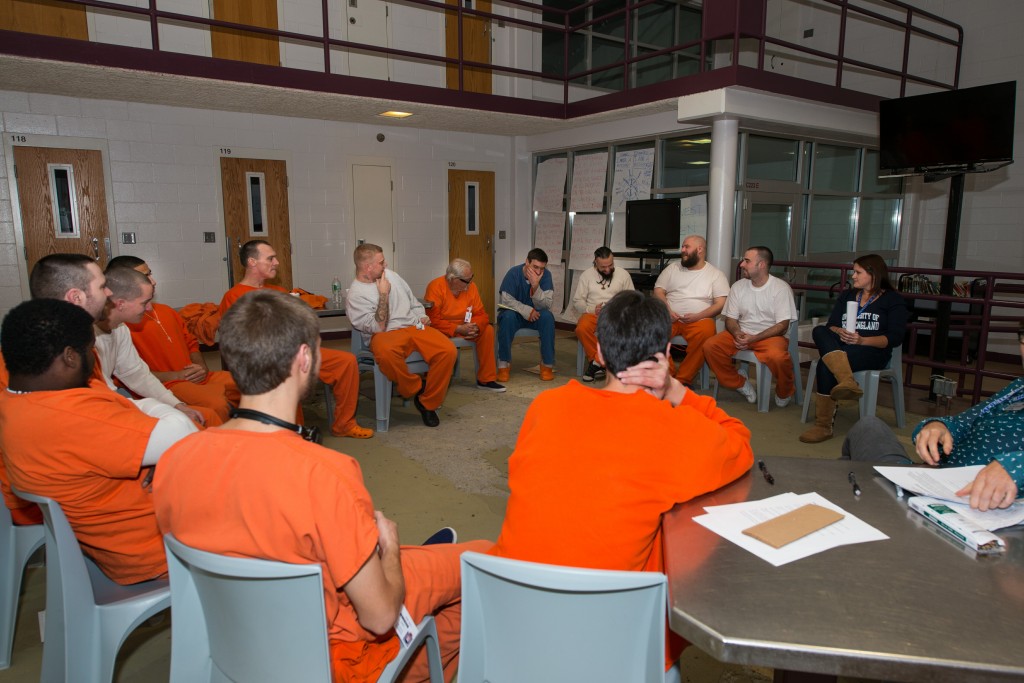
Cumberland County Jail–University of New England Collaborative Project
Since fall 2012, interprofessional teams of students have been working collaboratively with inmates and jail staff of Cumberland County Jail (CCJ) to design service projects. The projects focus on providing inmates with opportunities for healthy living in such areas as improved nutrition, infectious disease prevention, stress management skills, increased physical activity, and opportunities for discussion and support. Through this project, you learn how to collaborate with other professions and also with nonprofessionals and “targets” of intervention through orientation, training, implementation of projects, and reflection.
Learning Objectives
- Increase cultural competency, self-awareness, and social justice consciousness.
- Increase your understanding of the jail context and the challenges of working in under-resourced settings.
- Center to Advance Interprofessional Education and Practice (CAIEP, formerly the Center for Excellence in Collaborative Education) competencies of teamwork, communication, values, and roles and responsibilities.
Project Structure
If you wish to participate in the collaborative, you must apply and commit to each of the following required project elements. Once accepted, you must be fingerprinted at the jail (the fee will be waived since you are a volunteer).
Week 1: On campus, team formation
This will be an opportunity to meet team members and faculty mentors you’ll be working with throughout the semester. Team leaders will be identified and team planning meeting dates/times will be determined. We will also cover both the standards and competencies of interprofessional education, tips for working as effective interprofessional teams, and the Weekly Wellness Workshop (WWW) curriculum, which was designed in partnership with inmates.
Week 2: At CCJ, Cumberland County Jail Orientation
Led by jail staff, this meeting covers all elements of jail policy, safety, volunteer rules, and a tour of the facility. At the conclusion, you will debrief for 10–15 minutes with a faculty mentor. Note: If you miss orientation you will not be allowed to continue participation.
Week 3: On campus, Team Planning
You will meet as a team to review orientation and discuss ideas for activities during the 5-week session.
Week 4: At CCJ, Planning workshop with inmates and faculty mentors
You will meet with a group of inmates and learn about the particular health needs and environmental conditions/constraints of staying healthy in jail.
Week 5: On campus, Team Planning
You will meet as a team to review the planning workshop and plan out activities during the 5-week session.
Weeks 6–11: At CCJ, project implementation with faculty
Over the course of 5 weeks, you will meet with inmates to implement health promotion programming. Following each hour and a half session, you will be expected to participate in formal debriefing discussion led by the faculty member.
Week 11: On campus, debrief/wrap up
With faculty, you will gather for a closing session to discuss lessons learned, celebrate team accomplishments and strategize about how to improve the program moving forward.
Resources
Placement on teams is by application only. Applications are available by request.
Successful completion of WWW at the CCJ can qualify for the IP Honors Distinction. For more information, email caiep@une.edu.
